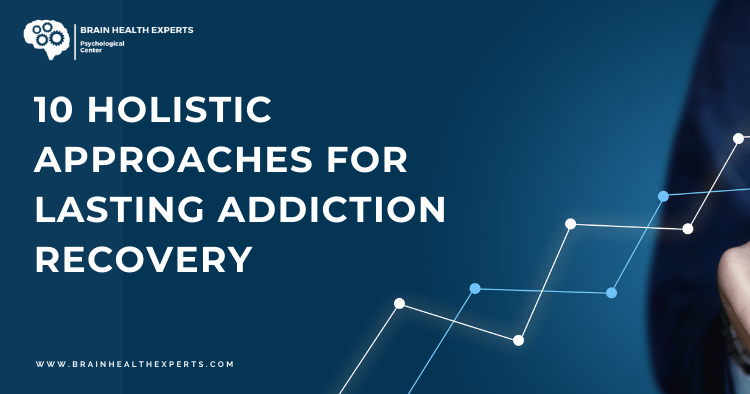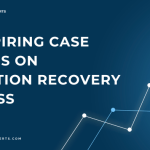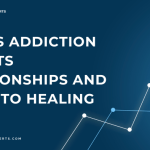Table of Contents
- Understanding Holistic Approaches
- Mindfulness and Meditation
- Nutrition and Diet
- Physical Activity
- Yoga and Tai Chi
- Art and Music Therapy
- Nature Therapy
- Acupuncture and Alternative Therapies
- Support Groups and Community
- Spiritual Practices
Understanding Holistic Approaches
Holistic approaches to addiction recovery focus on treating the whole person rather than just the addiction itself. This means addressing physical, emotional, mental, and spiritual aspects of a person’s life. Traditional addiction treatments often center on the substance or behavior in question, but holistic methodologies recognize that underlying issues and lifestyle choices can significantly affect recovery outcomes.
By integrating various modalities, individuals can cultivate a sustainable path to recovery that fosters self-awareness, resilience, and overall well-being.
This article explores ten holistic approaches that can support lasting addiction recovery.
Mindfulness and Meditation
Mindfulness and meditation involve cultivating a state of awareness and presence in the moment. These practices help individuals observe their thoughts and feelings without judgment, reducing stress and anxiety, which are often triggers for relapse.
Benefits:
- Stress Reduction: Mindfulness techniques can lower cortisol levels, making it easier to cope with challenges.
- Emotional Regulation: Regular practice helps individuals manage their emotions more effectively.
- Improved Focus: Mindfulness enhances attention and concentration, beneficial for navigating daily life.
Getting Started:
Begin with just five minutes a day. Apps like Headspace or Calm provide guided meditations that can help you build a consistent practice. You can also explore 10 powerful techniques to cultivate a positive mindset for enhancing your mindfulness journey.
Nutrition and Diet
Proper nutrition plays a crucial role in recovery. Substance use can deplete essential nutrients, leading to imbalances that affect mood and physical health.
Key Nutrients to Consider:
| Nutrient | Benefit |
|---|---|
| Omega-3s | Supports brain health |
| B Vitamins | Boosts energy levels |
| Antioxidants | Reduces inflammation |
| Magnesium | Alleviates anxiety |
Tips:
- Balanced Meals: Focus on whole foods, including fruits, vegetables, whole grains, lean proteins, and healthy fats.
- Stay Hydrated: Water is essential for overall health and can help mitigate withdrawal symptoms.
For more insights on nutrition’s role in mental health, check out top 10 must-read books on nutrition and mental health.
Physical Activity
Exercise is a powerful tool in addiction recovery. It releases endorphins, improves mood, and can help mitigate the physical symptoms of withdrawal.
Benefits of Exercise:
- Reduces Cravings: Physical activity can distract from cravings and reduce their intensity.
- Improves Sleep: Regular exercise promotes better sleep quality, which is often disrupted during addiction.
- Builds Confidence: Achieving fitness goals boosts self-esteem and resilience.
Recommendations:
Aim for at least 30 minutes of moderate exercise most days of the week. Activities can include walking, cycling, swimming, or joining a fitness class. For more on boosting self-esteem through activities, visit 10 effective strategies to boost your self-esteem today.
Yoga and Tai Chi
Both yoga and Tai Chi are mind-body practices that emphasize balance, flexibility, and relaxation. They can help individuals reconnect with their bodies and cultivate a sense of inner peace.
Benefits:
- Stress Relief: These practices promote relaxation and reduce anxiety.
- Enhanced Self-Awareness: They encourage a deeper connection to oneself, fostering emotional processing.
- Community Connection: Many classes offer a supportive environment, helping individuals build relationships.
Getting Started:
Look for local classes or online videos to guide your practice. Websites like Yoga with Adriene offer free resources to help you begin.
Art and Music Therapy
Creative therapies like art and music therapy provide alternative means of expression, allowing individuals to process their experiences and emotions in non-verbal ways.
Benefits:
- Emotional Expression: These therapies provide a safe outlet for feelings that may be difficult to articulate.
- Cognitive Engagement: Engaging in creative activities stimulates brain function and can enhance problem-solving skills.
- Building Community: Group therapy sessions foster camaraderie among participants.
How to Get Involved:
Many rehabilitation centers offer art and music therapy as part of their programs. Alternatively, consider enrolling in community classes or workshops, such as those discussed in top 7 emotional intelligence training programs 2024.
Nature Therapy
Nature therapy, or ecotherapy, emphasizes the restorative power of the natural world. Spending time outdoors can significantly enhance mental well-being and reduce stress.
Benefits:
- Improved Mood: Nature has a calming effect and can decrease levels of anxiety and depression.
- Increased Physical Activity: Outdoor activities like hiking or gardening encourage movement.
- Mindfulness Opportunities: Nature encourages mindfulness, allowing individuals to immerse themselves in their surroundings.
Getting Started:
Plan regular outings in nature, whether it’s a walk in the park or a weekend hiking trip. Apps like AllTrails can help you find local trails.
Acupuncture and Alternative Therapies
Acupuncture and other alternative therapies can help alleviate withdrawal symptoms and cravings by promoting balance in the body.
Benefits:
- Pain Relief: Acupuncture can reduce physical pain and discomfort associated with withdrawal.
- Stress Reduction: The practice promotes relaxation and can help with anxiety.
- Holistic Healing: These therapies address the body’s energy systems, promoting overall well-being.
Finding a Practitioner:
Look for licensed acupuncturists in your area or explore other alternative therapies, such as massage or chiropractic care. The National Certification Commission for Acupuncture and Oriental Medicine can help you find qualified practitioners.
Support Groups and Community
Building a support network is vital in recovery. Support groups provide a sense of belonging and understanding, allowing individuals to share their experiences and challenges.
Benefits:
- Shared Experiences: Connecting with others who understand addiction fosters empathy and reduces feelings of isolation.
- Accountability: Regular meetings encourage individuals to stay committed to their recovery goals.
- Access to Resources: Support groups often provide valuable information and resources for ongoing recovery.
Finding Support:
Organizations like Alcoholics Anonymous and Narcotics Anonymous have local chapters and online meetings available. For additional resources, consider top 10 essential workplace mental health resources 2024.
Spiritual Practices
Spirituality can play a significant role in addiction recovery, offering individuals a sense of purpose and connection to something greater than themselves.
Benefits:
- Increased Resilience: Spiritual practices promote hope and positivity, essential for overcoming challenges.
- Sense of Community: Many spiritual practices involve group gatherings, fostering connections with others.
- Self-Reflection: Engaging in spiritual practices encourages introspection and personal growth.
Exploring Spirituality:
Consider exploring different spiritual practices, including meditation, prayer, or attending community services. Resources like The Spirituality & Health Magazine can provide insight into various practices.
Conclusion
Incorporating holistic approaches into addiction recovery can significantly enhance the journey toward lasting change. These methods not only address the physical symptoms of addiction but also promote emotional healing and personal growth.
By embracing a holistic lifestyle, individuals can cultivate resilience, foster connections, and find joy in their recovery journey.
FAQs
1. What is the difference between holistic and traditional approaches to addiction recovery?
Holistic approaches focus on treating the whole person—mind, body, and spirit—while traditional approaches often center on the addiction itself.
2. Can holistic approaches be used alongside traditional treatments?
Yes! Many individuals find that combining holistic and traditional methods enhances their recovery experience.
3. How long does it take to see results from holistic approaches?
Results can vary depending on the individual and the method used. Many people notice improvements in mood and well-being within a few weeks.
4. Are holistic approaches suitable for everyone?
While many individuals benefit from holistic approaches, it’s essential to consult with a healthcare provider to determine the best course of action for your unique situation.
Embrace the journey of recovery with an open heart and mind, and remember that lasting change is possible with the right support and practices!





